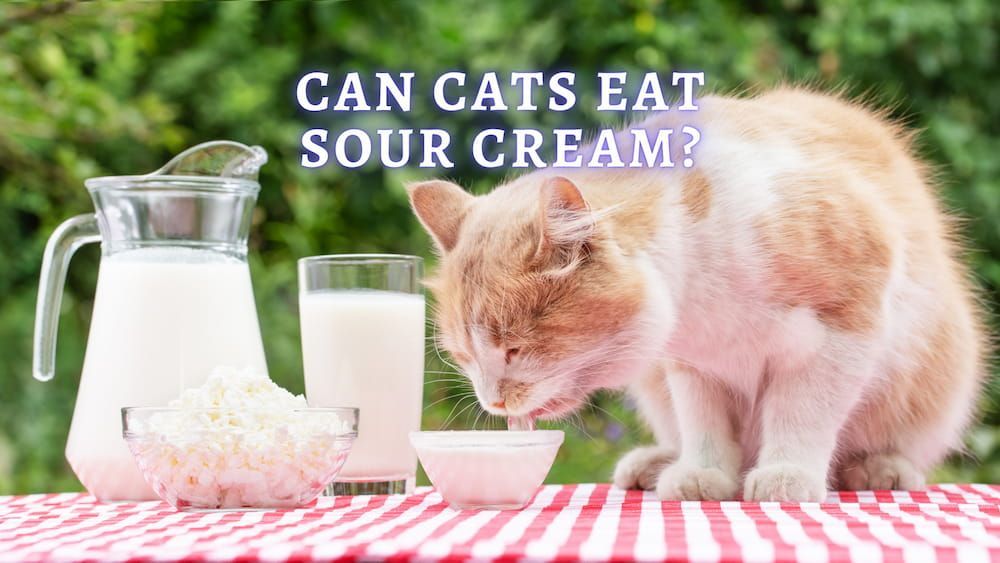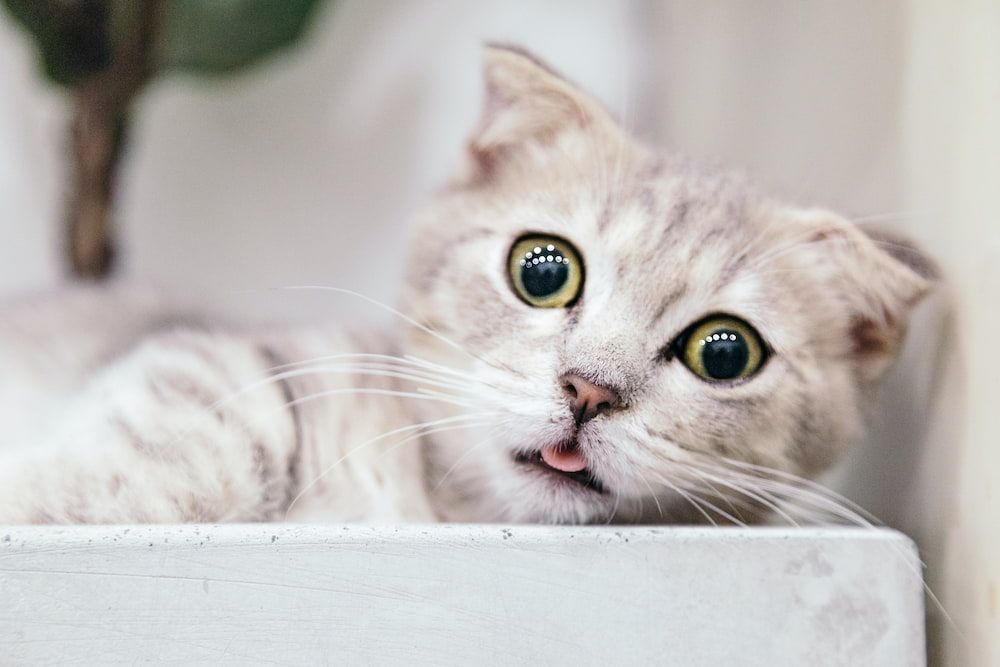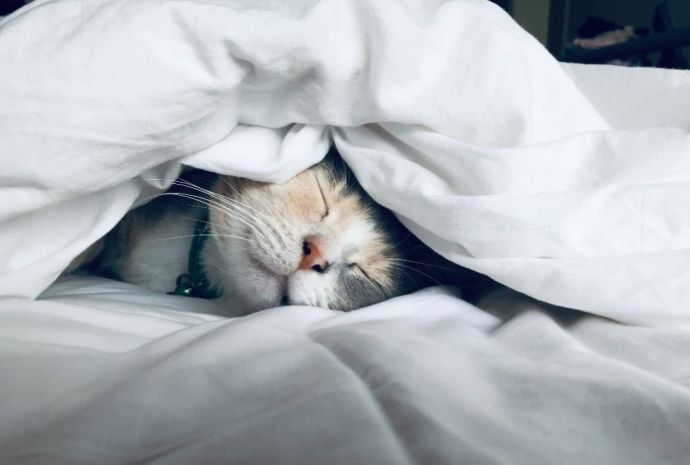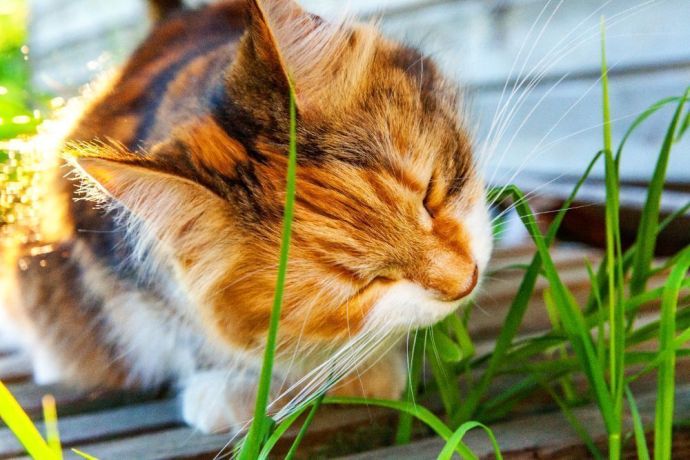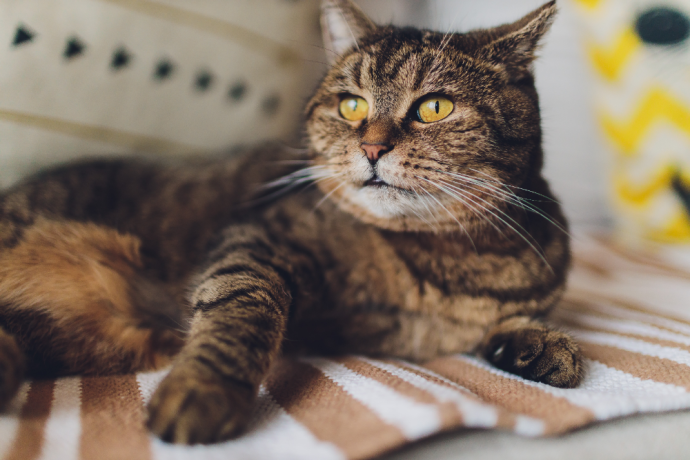Cats and Sour Cream: Can Cats Eat Sour Cream?
Written by:
Author: Carol Young
Carol has worked in specialty, emergency, mixed animal and general veterinary practices, and enjoys all aspects of veterinary medicine. Her special areas of interest include anesthesia, critical care, emergency, dentistry, internal medicine and small animal nutrition.
View all 62 articlesLearn about our editorial process and veterinary review board.
Viewed: 784
Updated on: 03/23/2022
It’s well known that cats love cream and milk. We’ve seen countless movie scenes of nice old ladies putting out bowls of dairy for sweet prowling felines, and if you are a cat owner, chances are your feline friend showed interest in your bowl of cereal with milk at some point in time. Just as dogs can go bonkers over liver treats, cats are naturally drawn to milk, whip cream, sour cream, and other dairy products. Most kitties love milk and anything dairy, but you may debate whether it’s a good idea to offer your kitty a little taste of sour cream now and then.
Is Sour Cream Safe for Cats?
If you offer your cat a little sour cream from your nachos or baked potato, chances are it won’t harm at all. However, veterinarians caution owners against overindulging with dairy products. When nursing, kittens can digest lactose (the primary sugar in milk), but after weaning this capability diminishes as they age. After weaning, the enzyme lactase (which helps with the digestion of milk) disappears from their bodies. So older cats may experience some GI (gastrointestinal) upset after filling up on sour cream because the undigested lactose begins to ferment, creating gas and some stomach discomfort.
Because sour cream is fermented, it does contain less lactose than other milk products. And although an occasional sour cream treat is probably perfectly safe for your kitty, it’s important to know that sour cream, whip cream, and even whole milk can add unhealthy amounts of fat in a cat’s diet. Too much fat can promote weight gain and contribute to an upset stomach. A sure sign of too much sour cream is loose stools and diarrhea. Just as in people, these are signs of lactose intolerance.
READ MORE: What Food Can Cats Eat? Vet Recommendations
Are All Cats Allergic to Dairy?
Cats aren’t allergic to dairy, but they are lactose intolerant. Lactose is a carbohydrate sugar that needs to be broken down chemically for digestion. Since weaned and adult cats lack the enzyme lactase to break down lactose, too much indulging will result in a bad stomach ache and other GI problems. Allergic reactions to substances are typically triggered by certain proteins, which stimulate the body’s immune system. With dairy products and felines, the immune system is not affected, rather it’s the reaction to the inability to digest the lactose.
READ MORE: Best Cat Food for Allergies (Vet Approved Review)
What Are Signs That My Cat is Lactose Intolerant?
There are several signs of lactose intolerance and most involve GI signs and symptoms. The most common signs of lactose intolerance include the following:
- Flatulence and excessive gas.
- Diarrhea and loose stools.
- Vomiting.
- Abdominal bloating and discomfort.
- Increased thirst (polydipsia).
- Constipation.
- Dehydration and dry gums.
If you think that your cat has overindulged in dairy products, including sour cream, contact your veterinarian and make an appointment. Taking your kitty to the veterinarian is especially important if your cat is vomiting and experiencing diarrhea that will not resolve. Chronic vomiting and diarrhea can lead to dehydration. Your veterinarian can conduct a thorough physical examination and may recommend diagnostics such as X-rays and blood work to rule out other medical issues.
How to Treat Cat Lactose Intolerance?
The treatment for lactose intolerance, especially if your cat is vomiting and has diarrhea, should be handled by your veterinarian. However, if you think that your cat is showing only mild signs, you can first try withholding sour cream, milk, and other dairy products. For more severe intolerance episodes, your veterinarian may recommend hospitalization and supportive care until your cat recovers.
Dehydration is the main concern with lactose intolerance in cats and can be treated with hospitalization, and with IV (intravenous) fluids to restore hydration and electrolyte balance. Treatment for milder conditions can include subcutaneous fluids, where a needle is inserted underneath the skin just between the shoulder blades, and fluids are administered that way. After this type of treatment, your cat may have a “camel hump” for a few hours until the fluids are absorbed by the body.
READ MORE: Can Cats Eat Spicy Food?
Pros and Cons of Sour Cream for Cats
Sour cream is especially yummy on a baked potato, and the reason it tastes so good is that it’s mostly made up of fat and protein. Being true carnivores, felines love fat and protein. Since adult felines are lactose intolerant it’s important to know that even though sour cream contains less lactose than milk or cream, it still can cause some GI upset. Below are listed some pros and cons of sour cream for cats.
Pros
Cons
- An occasional tasty treat. Once in a while offering your cat sour cream won’t cause her undue harm, but always be on the lookout for GI signs.
- Added calories for a skinny feline. If you have a skinny cat, an elderly cat, or those who could use some extra ounces, an occasional sour cream treat may help. However, it’s recommended to consult your veterinarian first regarding any diet changes.
- Sour cream is fermented. Fermented dairy products are lower in lactose, and cats may tolerate these better than milk or cream. Sour cream is an example of a fermented dairy product, as is yogurt, kefir, and buttermilk.
- Lactose intolerance-related symptoms can emerge such as gas, vomiting, and diarrhea. If you notice these and other signs of lactose intolerance, immediately stop offering any kind of dairy to your cat.
- High in saturated fat. Sour cream is tasty because it’s high in fat, and if your cat is experiencing weight issues, it’s best to keep a lid on the sour cream. The average serving of sour cream (1 tsp/12g) has 2.4g of fat. The recommended amount of fat for the average adult cat weighing 9 lbs (4000g) is 5.5g per day.[1]
- So even a tiny little teaspoon of sour cream has ½ the recommended daily allowance of fat for your kitten.
Other Dairy Products That Cats Can Eat
As described above, felines and dairy products don’t go well together. However, fermented dairy products such as sour cream can be better tolerated because they are lower in lactose. If you feel the need to offer your cat something dairy, you can consider the following:
- Yogurt. Small amounts of yogurt can be safe for your cat, but make sure to avoid yogurts with sugar or artificial sweeteners.
- Kefir. Kefir is a fermented milk product (goat, cow, or sheep milk) that is like a drinkable yogurt. Kefir is generally safe for cats, and since it contains probiotics, it can offer some GI benefits for kitties.
- Buttermilk. You can try offering your cat a small amount of buttermilk, starting with 1 tablespoon. If your feline friend does not show any signs of GI upset at least 24 hours afterward, you can probably offer it as an occasional treat.
READ MORE: Can I Give My Cat Canned Tuna?
FAQs
Can Cats Eat Sour Cream and Onion Chips?
There’s nothing better than sitting down on the couch and munching on some sour cream and onion chips. But should you share your snack with your cat? The short answer is no. Potato chips are loaded with fat and salt, and if they contain onion, that’s a double-whammy for cats. Onion in all of its forms (dehydrated, powder, raw, or cooked) is toxic to cats and can destroy red blood cells resulting in anemia. In this case, you can offer your kitty a taste of sour cream but skip the onion chips.
Can Cats Eat Sourdough?
Since felines are carnivores, few are drawn to carbohydrates and grain products such as bread. If your cat has a hankering for sourdough bread, giving her a taste is perfectly fine. Bread is not harmful to them, but it’s important to know that excessive carbohydrate consumption can lead to obesity.
Is it OK for Cats to Eat Cream?
As mentioned above, cats and dairy don’t like each other. Given that cats are lactose intolerant, they can’t digest the lactose sugars in dairy products. Since the cream is non-fermented, it contains a higher amount of lactose than sour cream. It’s also especially high in fat (that’s why it tastes so good). If you feel like offering your cat a taste of cream, try to keep the servings to a minimum and only occasionally. Also try to keep an eye out for GI signs and symptoms, and immediately discontinue if your there is diarrhea or vomiting.
It’s no secret that felines love dairy products, especially milk, cream, sour cream, and whipping cream. The reason is that the majority of dairy products contain proteins and fats, two things that carnivorous cats adore. However, it’s important to note that they cannot digest dairy products as well as humans, and in large amounts, dairy products such as sour cream can cause symptoms of lactose intolerance such as vomiting, diarrhea, and abdominal bloating. If you want to offer your feline friend an occasional dairy treat, try to keep things to a minimum to avoid GI upset.
Article Sources:
- “YOUR CAT’S NUTRITIONAL NEEDS A Science-Based Guide For Pet Owners.” National Research Council of the National Academies, nap.edu/resource/10668/cat_nutrition_final.pdf.
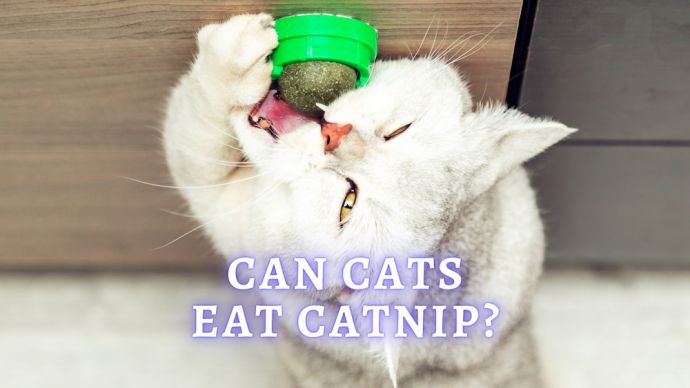 Cat Care Can Cats Eat Catnip? Are There Any Health Benefits to Cats Eating Catnip?
Cat Care Can Cats Eat Catnip? Are There Any Health Benefits to Cats Eating Catnip? - 70
- 0
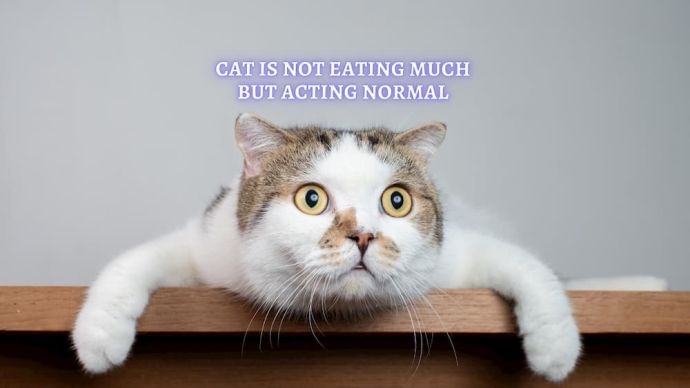 Cat Diet & Nutrition My Cat not Eating much but Acting normal: Reasons and Solutions
Cat Diet & Nutrition My Cat not Eating much but Acting normal: Reasons and Solutions - 12381
- 0
 Cat Care Why Does My Cat Attack My Legs? 10 Reasons Why and What To Do About It (Vet-Approved Advice)
Cat Care Why Does My Cat Attack My Legs? 10 Reasons Why and What To Do About It (Vet-Approved Advice) - 45083
- 21
 Cat Veterinary Tips Cat Stomach Gurgling: Vet Advice on Why is Your Cat Stomach Gurgling?
Cat Veterinary Tips Cat Stomach Gurgling: Vet Advice on Why is Your Cat Stomach Gurgling? - 33735
- 4
 Cat Veterinary Tips My Cat Lost its Voice: Can Cats get Laryngitis? (Vet Advice)
Cat Veterinary Tips My Cat Lost its Voice: Can Cats get Laryngitis? (Vet Advice) - 22891
- 13









